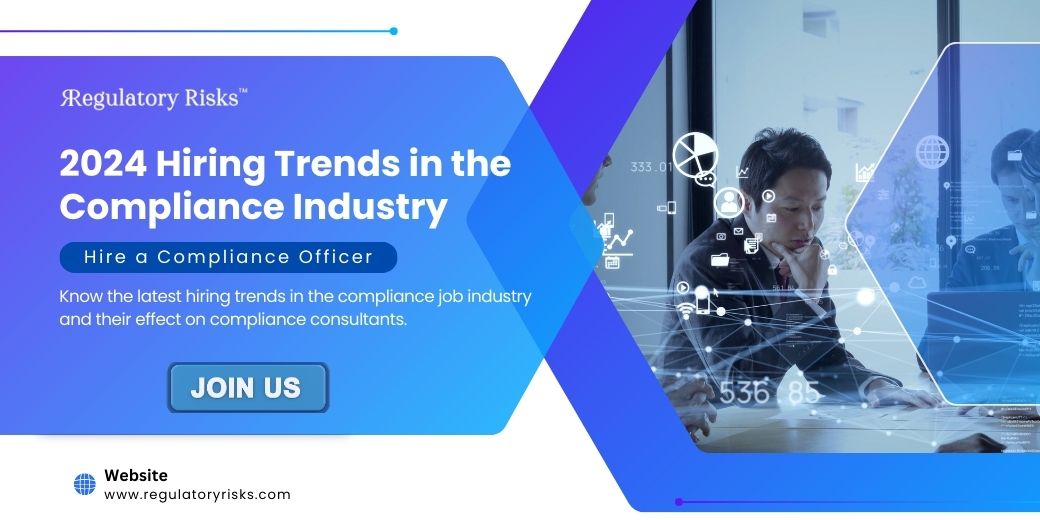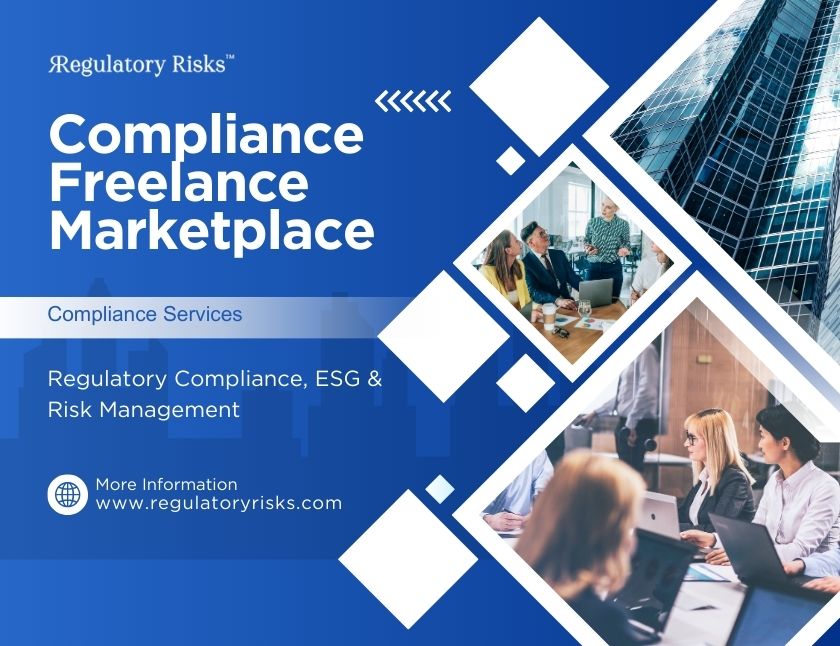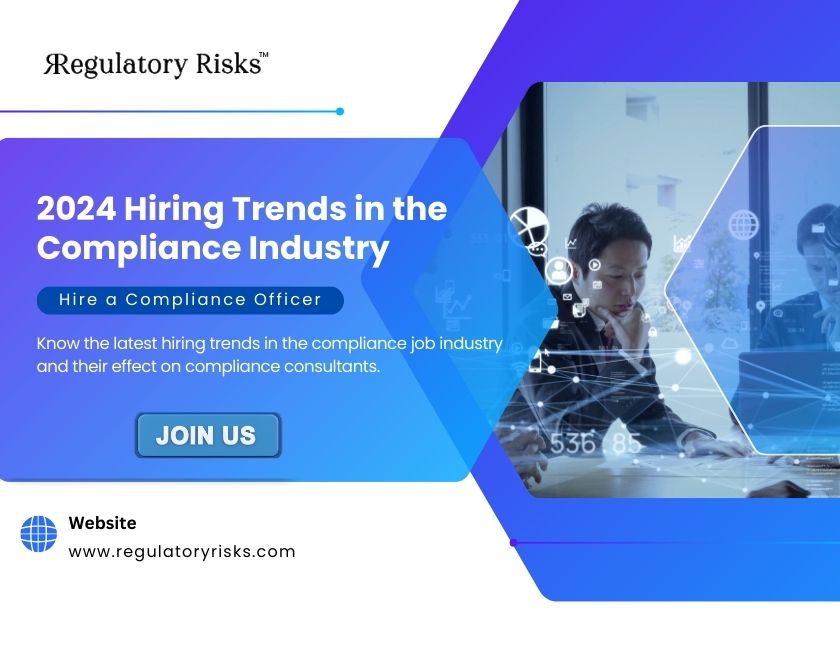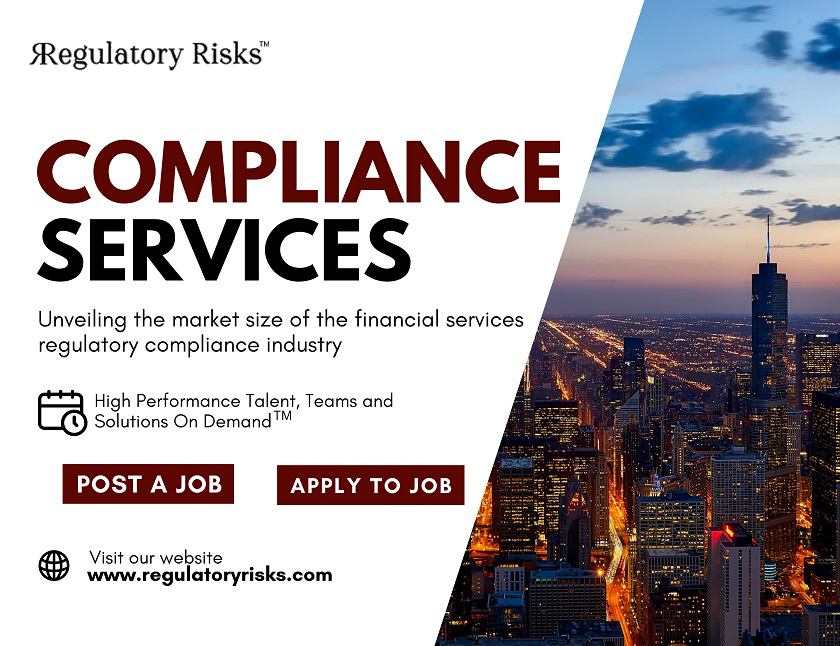The compliance industry is constantly evolving and adapting to new challenges and opportunities. Compliance professionals are in high demand as organizations seek to comply with various laws, regulations, standards, and best practices. However, finding and hiring the right talent for compliance jobs is not an easy task. In this article, we will explore some of the latest hiring trends in the compliance industry for 2024 and how they affect both employers, chief compliance officers and compliance consultants.
Using Artificial Intelligence and Automation
One of the major trends that is shaping the compliance industry currently is the use of artificial intelligence (AI) and automation. According to a recent study by Accenture, 54% of chief compliance officers say that AI and machine learning technologies will strengthen compliance. AI and automation can help compliance professionals to perform tasks such as data analysis, risk assessment, policy creation, reporting, and monitoring more efficiently and effectively. AI and automation can also reduce human error, bias, and fraud, and improve the quality and consistency of compliance outcomes.
However, AI and automation also pose some challenges and risks for the compliance industry. For instance, chief compliance officers and compliance consultants need to have the skills and knowledge to use, oversee, and audit AI and automation tools. They also need to ensure that the AI and automation tools are compliant with the relevant laws, regulations, and ethical standards. Moreover, chief compliance officers and compliance consultants need to balance the benefits of AI and automation with the human element of compliance, such as communication, judgment, collaboration, and empathy.Therefore, employers should consider the following:
- How to assess the AI and automation skills and competencies of chief compliance officers and compliance staff;
- How to provide training and development opportunities for compliance professionals to learn and update their AI and automation skills;
- How to create a culture of innovation and experimentation that encourages the adoption and use of AI and automation tools;
- How to manage the change and transformation that AI and automation bring to the compliance function and the organization;
Job Advertising and Jurisdictional Confusion
Another trend that is affecting the compliance industry is the increasing complexity and diversity of the compliance landscape. Chief Compliance Officers need to deal with various laws, regulations, standards, and best practices that may differ across jurisdictions, industries, and domains. For example, compliance professionals may need to comply with the General Data Protection Regulation (GDPR) in the European Union, the California Consumer Privacy Act (CCPA) in the United States, and the Personal Data Protection Act (PDPA) in Singapore, among others.
This means that chief compliance officers and compliance consultants need to have a broad and deep understanding of the compliance requirements and expectations in different contexts and scenarios. They also need to be able to adapt and customize their compliance strategies and solutions to suit the specific needs and preferences of their stakeholders, such as customers, employees, regulators, and partners.
However, this also creates some challenges and confusion for the compliance industry, especially when it comes to compliance job advertising and hiring. For instance, employers who are looking to hire a compliance officer, a compliance consultant, or a chief compliance officer may face the following issues:
- How to define and communicate the scope and responsibilities of the compliance role;
- How to attract and reach the right candidates who have the relevant compliance expertise and experience;
- How to evaluate and compare the qualifications and credentials of candidates from different jurisdictions, industries, and domains;
- How to ensure that the compliance role is aligned with the organizational goals and values
Pay Transparency Becomes the Rule
A third trend that is influencing the compliance industry is the growing demand and expectation for pay transparency. Pay transparency refers to the practice of disclosing and sharing information about the compensation and benefits of employees and compliance job applicants. Pay transparency can help to promote fairness, equity, and diversity in the workplace, as well as to enhance employee engagement, satisfaction, and retention.
Pay transparency can also benefit the compliance industry, as it can help to prevent and address issues such as pay discrimination, pay disparity, and pay inequity. Pay transparency can also help to improve the reputation and credibility of the compliance function and the organization, as it can demonstrate their commitment and accountability to ethical and responsible practices.
More Blog: Benefits of Hiring a Compliance Consultant
However, pay transparency also poses some challenges and risks for the compliance industry, such as:
- How to collect, analyze, and report the pay data of employees and job applicants;
- How to protect the privacy and confidentiality of the pay data and the individuals involved;
- How to handle and respond to the feedback and reactions of the employees, job applicants, and other stakeholders;
- How to balance the benefits and costs of pay transparency.
- Therefore, employers who are looking to advertise compliance jobs should consider the following:
- How to establish and communicate a clear and consistent pay policy and process;
- How to determine and justify the pay ranges and criteria for different compliance roles and levels;
- How to disclose and share the pay information with the employees, job applicants, and other stakeholders;
- How to monitor and review the pay practices and outcomes regularly and make adjustments as needed.
Conclusion
The compliance industry is facing many changes and challenges in 2024 and beyond. Compliance professionals need to keep up with the latest hiring trends and adapt to the new demands and expectations of the market. Employers who are looking for compliance jobs or compliance recruitment need to be aware of the trends and how they affect their hiring strategies and decisions. By doing so, they can find and hire the best talent for their compliance roles and achieve their compliance goals and objectives.
Regulatory Risks is a freelance marketplace that connects your business with chief compliance officers, compliance consultants and compliance services in the market. Whether you need a Chief Compliance Officer for a short-term project or longer-term compliance jobs, Regulatory Risks is your firm’s on-demand flexible specialist resourcing solution.
The Regulatory Risks platform is easy to use, secure and transparent. You can browse through profiles of vetted and verified compliance consultants and schedule video interviews. Hire a Compliance Officer today.




